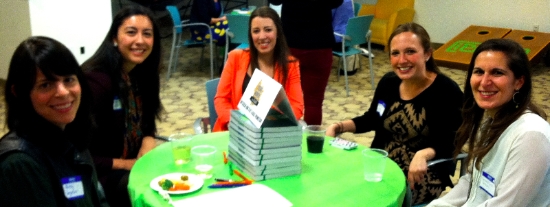The Recruiter Relationship
-
March 25, 2014
- Posted by: Chaloner


Since I started working at Chaloner last fall, I have witnessed many ways in which a recruiter relationship can be hugely beneficial to a professional communicator throughout the course of his or her career. Larry Galardi, whom we placed as the Director of Internal Communications at Alexion Pharmaceuticals, says this:
“While online media can be a treasure trove of opportunities, the best sources of viable career opportunities come from established and accredited executive recruiters… In fact, my recent career moves have come from old-fashioned relationship building via internal and external recruiters — and no surprise, each pointed me in a direction that made the most sense for my career and aspirations at the time.”
To get some thoughts from an experienced recruiter’s perspective, I interviewed my colleague, Jenn Saldarelli.
SB: Why is it important for a professional to develop a relationship with a recruiter?
JS: There are lots of good reasons, but here’s a good one: Recruiters often know about the good opportunities before they are on the market.
What can be done to maintain this relationship?
Have good follow-up with the recruiter when they connect with you. Send a brief note back even if the role isn’t right for you. I probably hear back from less than half of the people I contact about a position.
How might someone respond to outreach if they’re not interested in the role?
Saying something like “Sounds like a great role, but I’m not looking right now. I’d love to hear from you if any corporate social responsibility positions come along” is good and we always appreciate referrals. It’s great if you can recommend someone you know- either give their name or broker an email exchange- we appreciate both. Galardi agrees, “To return the favor, and keep these relationships thriving, I forward candidates to the recruiters as well — candidates with some resume chops and strong market potential. It’s a nice quid pro quo.”
How do you position yourself to be thought of when a new job comes along?
An initial introduction should be succinct: include a brief description of who you are, what you’re looking for and how many years of experience you have. If you are applying to a specific role, it’s great if you can demonstrate having done a bit of research. Beyond that, it’s okay to check in once a month or every few months to let us know you’re still on the search and to see if anything new has come up.
How is the recruiter a valuable resource throughout a hiring process?
We already have an established relationship with our client so we can get you in the door. A candidate we present has a little more weight than an applicant who approaches without an advocate. We can share insight about the company and role that aren’t in the job description, the history of the role, why it’s open, and what the hiring manager is like. And then we are there to guide you through the whole process: prep for the interview, process feedback, update you on the status of the search, and help navigate negotiations if an offer is made.
How guarded or unguarded should a candidate be with a recruiter?
Treat each meeting with a recruiter as you would a meeting with a potential boss. Don’t trash your current employer, dress professionally, and follow up appropriately. That said, if there is a difficult situation you need help navigating, we can assist. Be honest about salary and employment status and your reasons for leaving. Most likely these things will be revealed through reference checking and if you are found to have been dishonest, it will hurt your relationship with the recruiter, as it likely hurts their relationship with the client.
Jenn notices that, in general, thoughtful responses to her outreach come from more experienced candidates who know the benefit of having a relationship with a recruiter. She suggests, “If you are approached about a job you don’t feel you’re right for or are not interested in, take advantage of the opportunity to tell the recruiter about yourself and what you’re looking for.”
Chaloner, founded in 1979 as Chaloner Associates, is a national executive search firm that focuses on recruiting mid- to senior-level communications, public relations, marketing and investor relations professionals.
